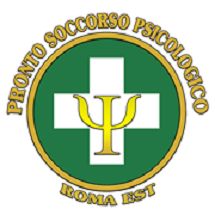
__________________________________________________
SIGNS
OF UNRESOLVED TRAUMA
PSYCHOLOGICAL
TRAUMA
SIGNS OF TRAUMA PROBLEM

INTRODUCTION
I
am a psychological first aid in Bungoma county Kenya (psychologist Isaya
Kutoyi) wish to welcome my fellow professionals psychological first aid
colleagues, other collaborators and esteemed readers of my articles on
psychological first aid.
In
this article I wish to highlight on how to
read the signs of unresolved trauma before you give the psychological first aid
to the victim and trauma problem.
Her
in this article are signs and symptoms of a victim or client with unresolved
trauma problems which you will detect before helping the victim of trauma as you
approach ways of providing your psychological
first aid.
SIGN
OF UNRESOLVED TRAUMA
A
pattern of out of-control and self-injurious behavior:
·
Addictive behaviors (over/under eating,
gambling, drinking OCD, smoking, etc.)
·
Patterns of repeated behavior
to avoid feelings (promiscuity ,internent use ,sleeping ,etc )
·
Chaos in life (problem in relationship,
employment, financial, etc.);
·
Self-harmful behavior (often “alluded to”
but not obvious) such as scratching and cutting, burning self, hair pulling,
etc.
Staying
stuck in the victim perpetrator or rescuer roles:
·
Seek out relationships with abusive people
·
Induce abuse from others rather than waiting
for it to happen
·
Perceive abuse which confirms the belief that
they are unworthy and unlovable
·
Hurt others (different than appropriate
self-protection)
·
Aggressive towards others who are weak and
vulnerable
·
Driven and compulsive to help others, often to
their own detriment
·
Acts of generosity are not in accord with the
relationship
Inability
to tolerate feelings or conflicts:
·
Blunt or numbness, withdrawal, no obvious
effect in appropriate situations
·
Movement to intense or overwhelming feelings suddenly
or rapidly (e.g., rage)
·
Depression (problem sleeping, eating, poor
energy, low motivation, poor self-esteem, poor memory, anxiety)
·
Panic feelings (trouble breathing, feeling as
if having a heart attack, fearful, anxious, etc)
Intense
self-blame and feelings of unworthiness or belief their life is “ruined”
·
Belief that they are responsible for original
trauma
·
Irrational/illogical beliefs about
responsibility for events in the present
·
Belief that they are bad, a failure, unlovable,
a loser, damaged, insignificant, worthless
·
May induce others to treat them badly
Disorganized attachments patterns:
·
Inability to tolerate their ambivalence towards
the perpetrator even after the trauma ceases
·
Inability to tolerate their ambivalence toward
other trusted figures, such as failed rescuers or those who denied the trauma
·
Inability to tolerate their ambivalence toward
significant persons currently in their lives
Difficulty
maintaining healthy relationship:
·
Avoid relationships altogether
·
Avoid close relationships because of inherent
risk
·
Avoid situations that might lead to closeness
·
Protect themselves, e.g. unfriendly to others
before others are unfriendly to them
·
Have intense but brief relationships
·
Remain attached even when the relationships is
unhealthy
·
Perceive the relationship in a distorted manner
Black
and white thinking and other cognitive distortions:
·
Child-like, concrete and magical thinking
·
What they think is normal and real does not
coincide with “real life’
·
“Life rules” and “automatic thoughts”
derive from childhood distortions
·
Cling to distortions despite challenge or
contrary evidence
·
Provoke a non-existent reality into being in
order to verify a distortion
·
Collect evidence to support the distortion
while ignoring evidence to the contrary
·
Patterns of distorted thinking(such as
generalizations, all or nothing, discounting, jumping to conclusions, assuming,
labeling and emotional reasoning)
Suicidal
ideation:
·
Talk about suicide
·
Wish they were dead
·
Have a plan to end their life
Pathological
dissociation:
·
Loss of long spaces of time (can’t remember
what they said or did)
·
Appear to “switch” personalities, or be
different people, even in speech and behavior
·
Trances or sleepwalking
·
Childhood companions, “voices,”” too much
noise in my head”
·
Inability to recall important information,
usually of a stressful or traumatic nature
·
Confusion about personal identity or assumption
of a new identity
Intrusive
thoughts, images, feelings, memories and nightmares
Extensive
comorbidity/multiple diagnoses, which may include addictions, mood disorders and
personality disorders
__________________________________________________
COPYRIGHT 2019 - 2020
STUDIO DI PSICOTERAPIA DEL DOTT. GIANNI LANARI

Piazza Sempronio Asellio 7
( fermata METRO GIULIO AGRICOLA )
ROMA
P. Iva 06019411005 - Tel. +39 0622796355
ATTENZIONE
I componenti della rete del progetto "Pronto Soccorso
Psicologico Roma Est" non offrono cure, supporto o consigli
immediati per le persone in una crisi suicida.
Per tale tipo di emergenza chiamare il 118 o il 112.
Ogni componente della rete del "Pronto Soccorso Psicologico
Roma Est" contribuisce al progetto in maniera pienamente
autonoma ed è quindi responsabile individualmente -anche sul
piano legale- del proprio operato.